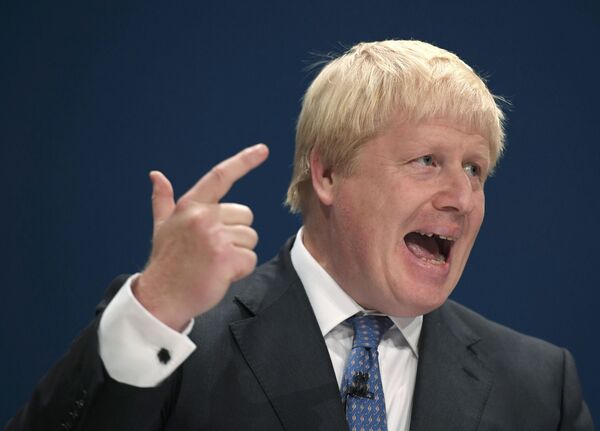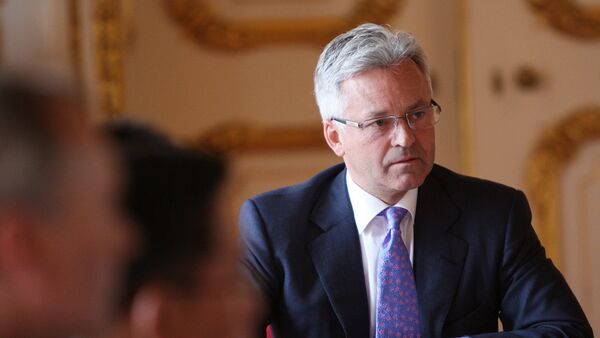Sir Alan Duncan is the Minister of State for Europe and the Americas at the Foreign Office.
On Tuesday (December 20), he was sat in front of the Foreign Affairs Committee who were deliberating on the state of the UK's relationship with Russia.
We're now hearing from @AlanDuncanMP and @foreignoffice officials on our #RussiaInquiry. Watch live: https://t.co/pujtjSCxXG
— Foreign Affairs Ctte (@CommonsForeign) December 20, 2016
Labour MP Mike Gapes, a former chair of the Foreign Affairs select committee, asked Sir Alan: "Is it our view as a Government that Russia has violated international law in Syria during its period of intervention?"
"I am not versed in the detailed technicality. I am familiar with the process of trying to judge whether IHL has been breached; it is a very important process," Sir Alan replied.
To which Mike Gapes said:
"I said 'international law'. International humanitarian law is one aspect, then there is another question of international law."
In @CommonsForeign Questioning @foreignoffice officials and Minister Alan Duncan on protection of civilians, witnesses, war crimes in Syria
— Mike Gapes (@MikeGapes) December 20, 2016
And Sir Alan replied:
"All right. None the less, we are again into legal details so I do not want to say something that is inaccurate. Neil, what would your answer be to that?"
Mr. Gapes then asked Sir Alan whether "they [Russia] breached international humanitarian law?"
"I cannot give you a direct answer to that because I do not directly cover the Syria brief… that does not come across my desk," Sir Alan said.
The exchange prompted confusion from the assembled MPs.
Only a week previously, in mid December 2016, Foreign Secretary Boris Johnson — Sir Alan's boss — accused both Russia and Iran of not upholding "humanitarian law" in Aleppo.

Mr. Johnson took the serious diplomatic measure of hauling in both Russia and Iran's ambassadors for questioning.
The political fiasco played out in front of the Foreign Affairs Committee exposed the deep divisions at the heart of the UK government on how to response to the situation in Syria.
More broadly, this state of jumbled confusion is afflicting the UK's key ally in their attempts to influence what happens on the ground in Syria: the US.
Also, on Tuesday 20th December, Russia hosted a joint peace summit with Iran and Turkey. The US was excluded, in a move that exposes Washington's current loss of influence.
Moving back to Westminster, the purpose of the Foreign Affairs Committee investigation was to try and make clear what the British government's official policy towards Russia is. The hesitation and direct contradiction of different ministers' evidence has only muddied the waters.
The committee will deliberate on the evidence it has heard, and is due to publish it's report on UK-Russia relations in early 2017.



